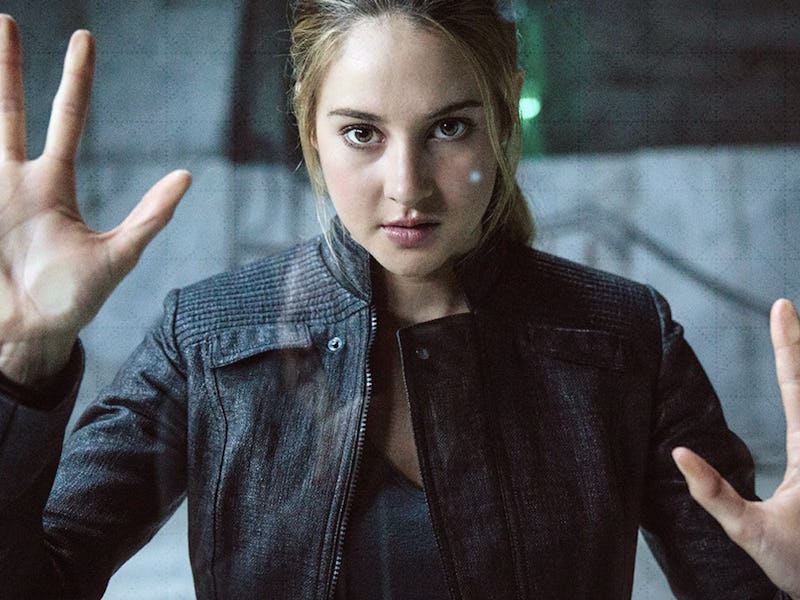You need to watch the most ideological post-apocalypse movie on HBO Max ASAP
Late to the trend and unable to launch a successful franchise, this 2014 teen sci-fi flick still had some interesting ideas on its mind.

You don’t have to understand Marxist philosophy to understand YA-lit film adaptations, but it can help. In Emily Bytheway’s essay “The Sorting Hat, Ideology, and Free Will,” Blytheway uses the Neo-Marxist philosopher Louis Althusser to understand the world of Harry Potter.
Althusser, one of the most influential and notorious philosophers of the 20th century, was concerned with how ideology affected people’s daily lives, writing that it represents “the imaginary relationship of individuals to their real conditions of existence." These ideologies, Bytheway writes, come into a person’s life through a “hail,” which “identifies an individual as a subject of the system.” Most people respond to the hail by accepting their place within the system. They may think they’re choosing that acceptance, but the system is choosing for them.
Hogwarts is filled with hails, from owls carrying letters of acceptance to the Sorting Hat announcing a person’s innermost characteristics. But an even grander version of this ideological test plays out in Neil Burger’s Divergent, where ideologies encompass not just a school, but an entire society.
Based on Veronica Roth’s book series, Divergent takes place in a post-apocalyptic Chicago where society is split into five factions. There are hippy farmers, militarized police, honest lawyers, scientific bookworms, and a faction of Mother Teresa-types called Abnegation who run the city-state. If you don’t fit into any of these groups you become Factionless, which is a fancy way to say homeless.
Beatrice Prior (Shailene Woodley) has grown up among Abnegation, where selflessness takes the form of plant-based diets and brutalist minimalism. But rumors are spreading of Abnegation parents abusing their children, including the Faction’s leader and Beatrice’s dad’s boss, Marcus (Ray Stevenson).
When Choosing Day comes, the 16-year-olds of Chicago have to go through a test and then decide which faction they want to dedicate their lives to. To the horror of Beatrice’s proctor, she doesn’t identify with any of the factions, which labels her “divergent.” But she wants to answer the hail and so she, like her brother (Ansel Elgort), chooses to leave Abnegation. This, as the “faction before blood” expression tells us, is a major life change.
The future may be bleak, but the military is young and attractive.
Beatrice is drawn to the hooting and hollering of the military-like Dauntless, where she’s given the name Tris and thrown into a series of exhausting exercises, many of which consist of jumping from trains or into pits. Tris struggles with training, despite earning the respect of an instructor named Four (Theo James). While Four has to work within a system run by the cruel Eric (Jai Courtney), he looks out for Tris.
Tris barely scrapes out success in the physical challenges of capture the flag and hand-to-hand combat, but she excels in the exploration of fears that are Dauntless’ mental challenges. Tris breaks out of these mental traps with an intellectual solution, a tactic that improves her ranking among the trainees but draws suspicion because she’s not thinking like a Dauntless. That’s a serious crime, as brainiac Erudite leader Jeanine Matthews (Kate Winslet) and Dauntless test administrator and tattoo artist Tori (Maggie Q) make clear.
Tris’ training sessions with Four continue, equipping her with new tools to tackle her biggest problems. And while Woodley is the star, James gives the most intriguing performance as the mysterious Four. He’s a brooding mystery, an oasis of sensitivity amid the screaming and cruel Dauntless. He has his own connection to Abnegation, and it’s clear that while he always searches for a tool like the Dauntless have taught him, he’s not above thinking through a problem. They’ll both need to be at their best as a coup plot bubbles to the surface.
Look closely and you might spot some subtle symbolism in Tris’ journey.
Divergent came out amid a craze of post-apocalyptic YA movies, led by The Hunger Games and The Maze Runner. Divergent, as a first entry, stands well against these movies. The world doesn’t always make sense — if Abnegation runs the land, why does the leader of Erudite seem to call all the shots? But picking apart the minor details of this world is missing the point.
It’s a world that reflects a teen’s search for identity, the struggle to fit in while everyone else seems to have their life path settled. The ideological hail is a powerful call. But instead of trying to be the best they can be within their society’s parameters, or trying to craft a better world, the characters of Divergent simply want to leave.
There’s a lot of bright, bold color in Divergent, and a lot of interesting ideas. It might have been just another entry in a long line of post-apocalyptic YA movies, but it knows what it wants to be and reaches surprising conclusions. It deserves to be remembered as more than a series that petered out and brought the dystopian trend to an end.
Divergent is streaming on HBO Max.
This article was originally published on